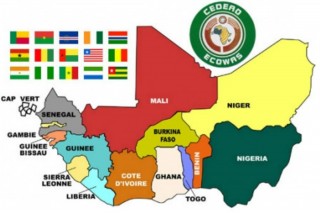On the 29th of May, 1979, the Heads of State and Government of the Economic Community of West African States (ECOWAS), signed a treaty giving Community citizens the right to enter, reside and establish themselves in the territories of Member States. Like the Scottish Philosopher and Economist, David Hume, once said: “Nothing is pure and entire of a piece [and] all advantages are attended with disadvantages,” the ECOWAS Transhuman Protocol does not come without its disadvantages. Nigeria is yet to address some of the disadvantages associated with this treaty including the deadly crimes linked to the Protocol and, if nothing is done soon, the country risks incurring even more of these ugly atrocities.
On Thursday last week, it was reported that the Federal Government of Nigeria, through its Minister of Agriculture and Rural Development, Audu Ogbeh, pointed out that the Economic Community of West African States (ECOWAS) Protocol on Free Movement of Persons, Residence, and Establishment is the reason why herdsmen from neighbouring West African countries are still being allowed to move their cattle across Nigeria.
“For pastoralists from neighbouring West African countries, access to grazing rights in countries in the ECOWAS zone including Nigeria, are guaranteed by the ECOWAS Transhumance Protocol of 1998 and ECOWAS Protocol of Free Movement of Goods and Persons in West Africa…So it is not strange to see a Malian, Burkinabe or Nigerien pastoralist grazing his cows, sheep or goats in Nigeria or a Nigerian pastoralist grazing his livestock in Benin, Togo or Ghana and by extension, transhumance pastoralists from other neighbouring countries,” Ogbeh said.
There are several beliefs about the origin of the herdsmen who are destroying farmlands, razing down villages and killing people in Nigeria. The Chief of Army Staff, Tukur Buratai, thinks they are members of the Boko Haram terrorist groupwho pretend to be herdsmen, while millions more believe that they are Fulani herdsmen from the northern part of the country. In the same light, the Federal Government and the Police have remarked that most of the herdsmen causing this new wave of trouble are non-Nigerians, coming from neighbouring countries like Mali, and Chad.
The treaty referred to by the Minister of Agriculture truly allows citizens of ECOWAS member states to enter, reside and establish in the Nigerian territory but not without its conditions and miscellaneous provisions. Before the minister can blame the treaty for the ‘helplessness’ of the Nigerian government in sending the foreign herdsmen away, he needs to understand what the details of the treaty are, or else, the country will only continue to groan from self-inflicted pains caused by sheer ignorance.
Paragraph 1 and 2 of Article 3 of the Economic Community of West African States (ECOWAS) Protocol on Free Movement of Persons, Residence, and Establishment stipulate the documents that must be possessed by anyone operating under this treaty and the conditions attached to the period of stay.
“Article 3
- Any citizen of the Community who wishes to enter the territory of any other Member State shall be required to possess a valid travel document and an international health certificate.
- A citizen of the Community visiting any Member State for a period not exceeding ninety (90) days shall enter the territory of that Member State through the official entry point free of visa requirements. Such citizen shall, however, be required to obtain permission for an extension of stay from the appropriate authority if after such entry that citizen has cause to stay for more than ninety (90) days.”
Is the Nigerian government saying that all these foreign herdsmen have fulfilled this portion of the treaty, such that they cannot be dispelled?
Even under the miscellaneous provisions of the treaty, expulsion and repatriation of citizens of ECOWAS member states is recognised and allowed:
“Article 11
- A decision to expel any citizen of the Community from the territory of a Member State shall be notified to the citizen concerned as well as the government of which he is a citizen and the Executive Secretary of ECOWAS.
- The expenses incurred in the expulsion of a citizen shall be borne by the Member State which expels him.
- In case of expulsion, the security of the citizen concerned as well as that of his family shall be guaranteed and his property protected and returned to him without prejudice to his obligations to third party.
- In case of repatriation of a citizen of the Community from the territory of a Member State, that Member State shall notify the government of the State of origin of the citizen and the Executive Secretary.
- The cost of repatriation of a citizen of the Community from the territory of a Member State shall be borne by the citizen himself or in the event that he is unable to do so by the country of which he is a citizen.”
With the foregoing, it is obvious that Nigeria cannot blame the ECOWAS Protocol on Free Movement of Persons, Residence, and Establishment entirely for her high-handed approach in dealing with the herdsmen crisis that has left scores of people dead in its wake.








